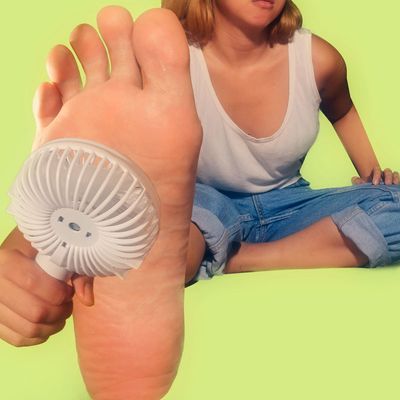How to Stop Sweaty Hands and Feet: Top Dermatology Treatments for Excessive Sweating
How to Stop Sweaty Hands and Feet: Top Dermatology Treatments for Excessive Sweating
Blog Article
Comprehending the Origin of Excessive Sweating and Its Influence On Every Day Life
While it is commonly recognized as a physical reaction to regulate body temperature level, the triggers for too much sweating can vary widely amongst people, encompassing not just physical aspects however psychological and additionally emotional elements. By diving into the origin triggers of hyperhidrosis and exploring its complex impacts, a much deeper understanding of this prevalent issue can be obtained, dropping light on the intricacies that individuals grappling with excessive sweating browse on a daily basis.
Physiology of Sweat Glands
The law of sweat production, an essential physical process, is largely managed by the task of sweat glands dispersed across the body. Sweat glands are categorized right into two major types: eccrine and apocrine glands. Eccrine glands are one of the most numerous and are discovered in mostly all locations of the body. They play a vital function in thermoregulation by producing a watery fluid onto the skin's surface area, which aids and evaporates cool down the body down. On the other hand, apocrine glands are concentrated in locations abundant in hair follicles, such as the underarms and groin, and their secretions are thicker and milklike in appearance.
When the body temperature level rises, either because of physical task, high temperatures, or emotional anxiety, the worried system sets off the sweat glands to create sweat. This sweat is made up largely of water and electrolytes like sodium and chloride. The process of sweat manufacturing is crucial for maintaining the body's internal temperature within a slim, ideal array, highlighting the critical role sweat glands play in human physiology.
Triggers for Excessive Sweating
In comprehending the origin causes of extreme sweating, it is crucial to identify the triggers that can result in this physical action. Excessive sweating, likewise called hyperhidrosis, can be prompted by various aspects, both environmental and physical. One typical trigger is psychological stress and anxiety or anxiousness, which can boost the body's gland to create more sweat than is required for cooling. Physical exertion, high temperatures, and spicy foods are also known to trigger too much sweating in people vulnerable to this problem. Specific medical problems like hyperthyroidism, diabetes mellitus, or menopause can contribute to too much sweating as well.
Furthermore, drugs such as some antidepressants, opioids, and certain supplements can additionally function as triggers for hyperhidrosis. Understanding these triggers is crucial in handling excessive sweating successfully - Sweaty hands treatment. By identifying and attending to the specific triggers that trigger excessive sweating in a private, doctor can develop tailored treatment plans to relieve this condition and enhance the person's quality of life
Medical Conditions Associated
Related to excessive sweating are different clinical problems that can intensify this physical feedback. One common condition is hyperhidrosis, a condition identified by abnormally enhanced sweating that surpasses the body's thermoregulatory demands. This can manifest in focal areas like the hands, soles, underarms, or face, influencing a person's quality of life because of social shame and pain.
Additionally, endocrine disorders such as hyperthyroidism, diabetic issues, and menopausal hot flashes can also result in extreme sweating. Hyperthyroidism triggers an overproduction of thyroid hormones, accelerating metabolic process and setting off sweating. Diabetes can induce sweating episodes, particularly throughout hypoglycemic episodes when blood sugar level degrees drop too reduced. Menopausal warm flashes, credited to hormonal dig this fluctuations throughout menopause, can create unexpected and intense sweating, usually come with by flushing and heart palpitations.
In addition, infections like hiv, consumption, and endocarditis have been related to night sweats, an usual sign known to interfere with sleep and influence general well-being. These clinical conditions highlight the varied range of underlying variables that can add to too much sweating, requiring comprehensive analysis and administration by healthcare experts.
Emotional and emotional Variables

Influence On Social Communications
Excessive sweating can have extensive impacts on an individual's ability to engage comfortably in social interactions. The noticeable signs of sweat spots or damp patches on garments can bring about humiliation and self-consciousness, creating individuals to withdraw from social scenarios. This withdrawal can impact connections, restriction social activities, and impede professional and individual growth.

In addition, the anxiousness and self-esteem issues stemming from excessive sweating can impact communication and interpersonal skills. Individuals may have a hard time to focus on discussions, take part in team tasks, or reveal themselves confidently. This can cause feelings of isolation and solitude, as social connections end up being challenging to keep.
Conclusion

While it is generally comprehended as a physiological response to manage body temperature level, the triggers for extreme sweating can vary extensively amongst individuals, encompassing not just physical variables however mental and also psychological aspects. By delving right into the root creates of hyperhidrosis and discovering its multifaceted results, a deeper understanding of this pervasive problem can be acquired, losing light on the intricacies that individuals grappling with too much sweating navigate on a day-to-day basis.
Physical effort, high temperatures, and spicy foods are likewise known to cause extreme sweating in people susceptible to this problem. By determining and addressing the certain triggers that prompt extreme sweating in an individual, medical care companies can develop individualized therapy plans to relieve this condition and boost the individual's high quality of life.
Excessive sweating can have profound results on an individual's capability to involve conveniently in social communications.
Report this page